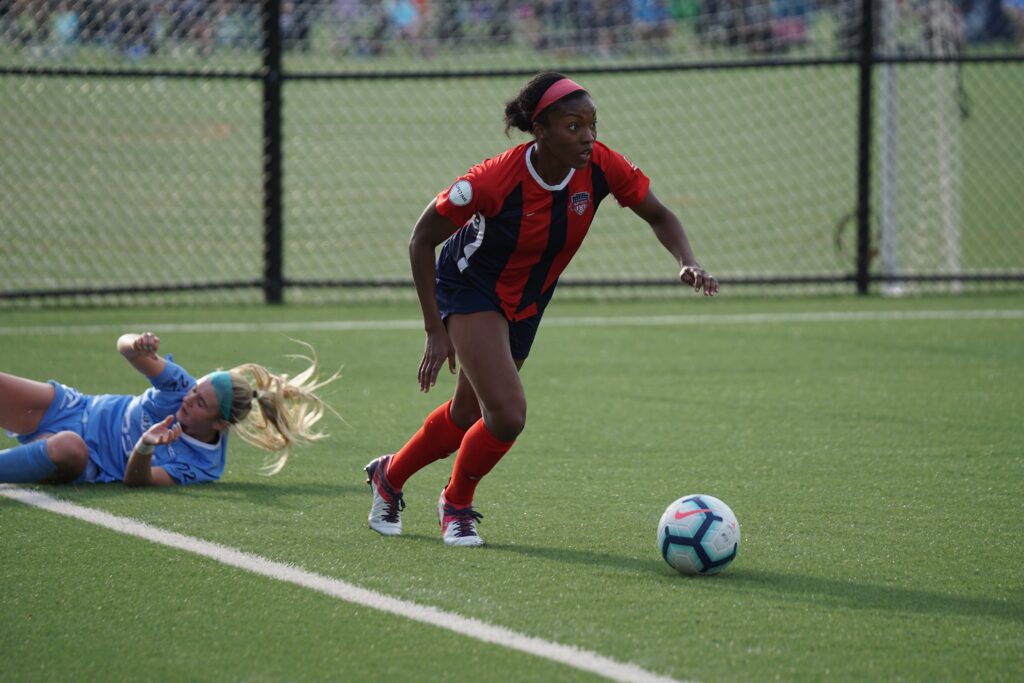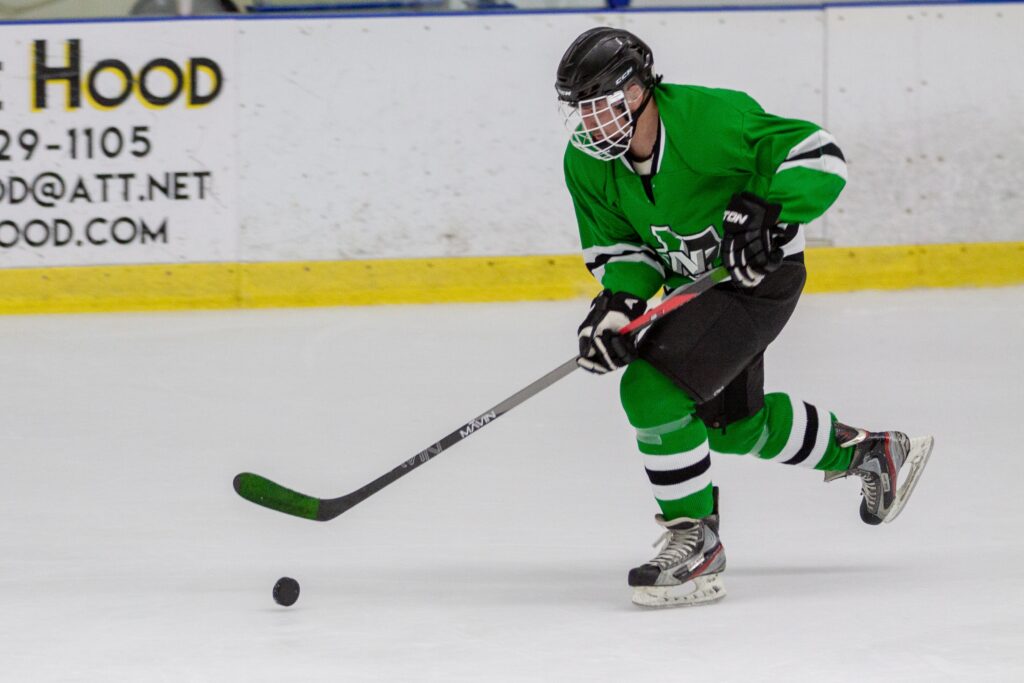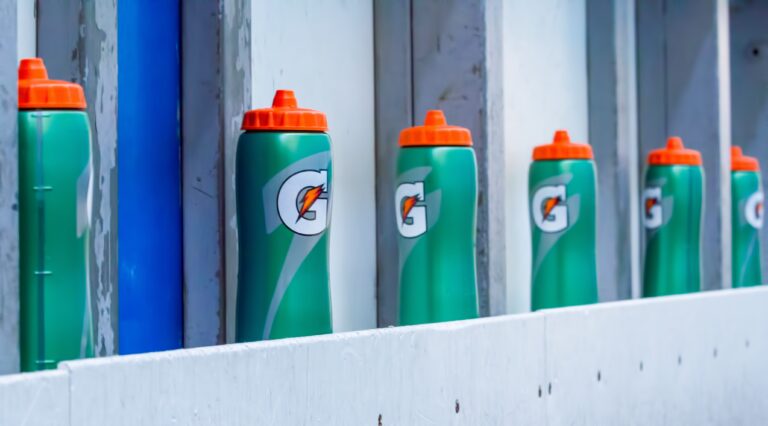You may be a parent (or an athlete yourself), wondering about sports drinks for young athletes. Sure, sports drinks are marketed to young athletes and promoted at games, tournaments, and practices, but are they actually necessary?
First off, let’s chat about what sports drinks ARE (and what they’re not). We will also review what the difference between sports drinks and electrolyte drinks are and which type is best for young athletes.
Purpose of sports drinks for young athletes
In general, athletes who are exercising intensively for a longer period of time (more than 60 minutes) may require sports drinks. If you are not exercising, you should not regularly consume sports drinks as a beverage. Rather, they should be used strategically as part of a sport nutrition fueling plan.
Sports drinks are generally not necessary for young athletes under the age of 12, as the time and intensity of sport at this age doesn’t typically require a sports drink. Although there are always exceptions – so if you’re wondering about your young athlete – reach out to our team!
Sports drinks contain water, sugars (carbohydrates), and electrolytes and minerals typically lost in sweat such as sodium, potassium, calcium, and magnesium.
Electrolyte drinks contain ONLY the electrolytes and minerals but don’t contain any carbohydrates (sugar).
Now you may be thinking at this point “no sugar- that’s a good thing, right?!”. Well, it depends on the purpose of why you’re using the sports drink. In most cases, we actually want to have sugar in our sports drink because that’s one of the purposes for drinking it!
Sodium and sugars (or carbohydrate – the terms will be used interchangeably) are the two most beneficial nutrients in sports drinks. Both are essential for refueling your muscles and staying hydrated during exercise. Carbohydrate stores in the body run out after about 45-60 minutes of exercise, so we need the extra sugar to keep energy levels up and prevent fatigue. Sodium is the primary electrolyte lost in sweat and and it is important to replace it (especially if you sweat a lot; are exercising in hot weather; and/or notice a lots of salt stains on your clothes and skin).

When does a young athlete need a sports drink?
Numerous studies have shown (here, here, and here) that adolescent athletes often experience hypohydration or dehydration. For this reason, staying well hydrated in general, should be a primary goal of the young athlete.
As mentioned already, when doing exercise longer than 45 minutes or so, our bodies run low on carbohydrate stores. This can lead to feeling fatigue and a decrease in performance. That’s why a sports drink (with sugar in it) is beneficial for activities lasting longer than 45 minutes.
You may especially want to choose a sports drink if these activities are outside on a hot and humid day. You will sweat more in these conditions, and typically also use up more energy when working hard, so you will have to replace carbohydrate and sodium.
You’ve probably heard a lot about how sugary sports drinks are. However, they actually contain less sugar than fruit juice or pop. A sports drinks should contain about 20-30 grams of carbohydrate per 500 mls, if formulated properly for athletes. Too much sugar during exercise could make it harder for your body to use the sugars, and could possibly cause bloating, nausea, or stomachaches during or after exercise.
In summary, sport drinks may be beneficial in athletes older than 12 years old if:
- They are exercising intensely for more than 45-60 minutes
- They need a quick fluid and carbohydrate source before exercise
- If refueling and rehydrating quickly in between games or practices is the priority (ie tournament situation)
- To rehydrate or refuel quickly after intense exercise

How much sports drink should my young athlete be drinking?
In general, teen athletes should hydrate with 2-4 cups of fluids (water or sports drink) in the 3-4 hours before exercise.
During exercise, you want to aim to get about 400-500 mls per hour as a minimum (water or sports drink). Sipping steadily throughout is better than chugging back fluids all at once. Aim to drink 2-4 large gulps every 15 minutes.
You may have to drink more if you: sweat a lot; are wearing heavy sports equipment (like in hockey or football); or are exercising in the heat (see here for more information)
Bottom Line
You only need a sports drink (that contains carbohydrates) when doing intense exercise that is 45 minutes or longer. A sports drink is also good to have on-hand during an outdoor sporting event during a hot and humid day. Sports drinks can also be helpful during a tournament or meet, when re-fuelling and rehydrating in between games or events is a priority.
Are you wondering if your young athlete needs a sports drink? Book a free clarity call with our team of experienced Sport Dietitians to learn more!








